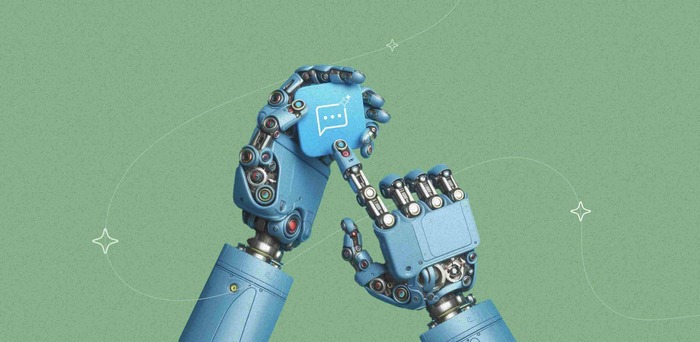How Generative AI is Transforming Code Refactoring for Modern Applications
In modern software development, code refactoring is no longer just an option—it’s a necessity. As applications scale and evolve, developers must ensure that their codebase remains efficient, readable, and maintainable. However, refactoring is often a time-consuming and labor-intensive process that requires deep domain knowledge and precision.
Enter generative AI, a groundbreaking technology reshaping the way developers approach refactoring. With support from a generative AI development company, this technology leverages its ability to analyze, understand, and rewrite code, transforming refactoring into a streamlined and efficient process.

What is Code Refactoring?
Code refactoring refers to the process of restructuring existing code without changing its external behavior. The primary goals are to improve readability, reduce complexity, and enhance performance. Key benefits of refactoring include:
- Easier maintenance and debugging.
- Improved application performance.
- Enhanced scalability for future updates.
Despite its importance, refactoring can be tedious and prone to human error, especially when dealing with large codebases or legacy systems.
Generative AI in Software Development
Generative AI, powered by models like GPT and Codex, has brought significant advancements to the software development process.
Unlike traditional automation tools, generative AI doesn’t rely on predefined rules or templates. Instead, it understands natural language instructions and learns patterns from massive datasets, enabling it to generate, optimize, and refactor code with unprecedented precision.
What sets generative AI apart is its adaptability. It can handle a wide range of tasks, from writing boilerplate code and suggesting improvements to modernizing legacy systems and even debugging. By analyzing the context of a project, generative AI can create solutions tailored to specific needs, ensuring compatibility with existing frameworks and technologies.
Companies like https://www.sombrainc.com are leading the charge in leveraging generative AI to revolutionize software development processes. Their expertise ensures businesses can seamlessly integrate AI-powered tools into their workflows to maximize efficiency and innovation.
How Generative AI Enhances Code Refactoring
Generative AI plays a pivotal role in simplifying and accelerating refactoring tasks, offering developers powerful tools to streamline processes and maintain high-quality codebases. Here’s how it makes a difference:
Identifying Code Smells
Generative AI can detect areas of improvement in a codebase, such as duplicated code, unused variables, overly complex functions, or inefficient loops.
These “code smells” often indicate deeper structural issues and are typically the first step in any refactoring process. By identifying such patterns early, AI allows developers to proactively address potential performance bottlenecks or maintenance challenges.
Automated Suggestions
Using context from the entire codebase, AI can suggest optimized code snippets, modernize syntax, or recommend alternative approaches to improve performance.
For example, it might recommend replacing a nested loop with a more efficient algorithm or refactoring a large function into smaller, modular methods. These suggestions not only improve code quality but also align with best practices for readability and scalability.
Legacy Code Modernization
Generative AI can transform outdated code into modern frameworks or programming languages, making it compatible with current technologies without rewriting it from scratch.
For instance, it can help migrate an old Java-based application to a microservices architecture or refactor legacy systems written in COBOL or C++ into more contemporary programming paradigms like Python or JavaScript.
Streamlining Large-Scale Changes
For massive projects, AI can automate repetitive tasks, such as renaming variables, updating deprecated APIs, or restructuring similar code patterns across multiple files. This saves developers countless hours of manual work and minimizes the risk of errors.
Additionally, AI tools can create refactoring “playbooks” that document changes, making it easier for teams to track and validate updates.
Error Detection and Prevention
Generative AI doesn’t just refactor code—it also cross-checks its suggestions for potential errors or vulnerabilities. By analyzing dependencies and execution paths, it ensures that the refactored code maintains the original functionality while minimizing the likelihood of introducing bugs.
Improved Collaboration
By documenting changes and offering consistent refactoring patterns, generative AI fosters better collaboration within development teams. New members can quickly understand the rationale behind refactored code, and the overall codebase becomes easier to maintain.

Benefits of Generative AI for Refactoring
Adopting generative AI for refactoring offers several advantages:
- Time Efficiency: Developers can focus on critical tasks while AI handles repetitive and time-consuming refactoring.
- Consistency: AI ensures uniformity in coding practices across the codebase, reducing discrepancies.
- Improved Quality: By providing optimized solutions, AI contributes to cleaner, more efficient code.
- Faster Onboarding: New team members can navigate an AI-reactored codebase more easily due to its improved readability.
Steps to Implement AI-Driven Refactoring
- Evaluate Your Needs: Determine whether your codebase has areas that could benefit from AI-driven refactoring.
- Choose the Right Tool: Select a generative AI platform tailored to your programming language and project requirements.
- Test in Small Batches: Start by applying AI recommendations to isolated code sections.
- Review and Validate: Always validate AI-generated changes to ensure correctness and security.
- Scale Gradually: Once confident, expand the use of AI-driven refactoring across the project.
Conclusion
Generative AI is a game-changer for code refactoring, transforming what was once a tedious and error-prone task into a streamlined process. By adopting AI-driven tools, developers can save time, improve code quality, and focus on innovation.
The future of software development lies in leveraging technologies like generative AI to optimize workflows and unlock new possibilities. Ready to take your codebase to the next level? Explore AI-powered refactoring tools and see the difference for yourself.






